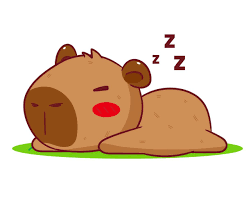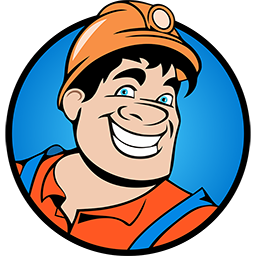
Functional Rehab Therapy
Functional rehabilitation is a restoration program that is designed to provide comprehensive treatment of an injury.
In contrast to traditional physical therapy, functional rehabilitation treats with the goal of returning the individual to full participation of the sport or activities of daily living at the prior level of activity.
This requires restoration of form as well as function. The functional rehabilitation program is designed to progress the person from simple activities, such as walking or jogging, to highly complex specific activities that require refined levels of proprioceptive acuity. In addition to strength and flexibility, a functional rehabilitation program also incorporates agility and proprioceptive/kinesthetic training.
Without appropriate rehabilitation, injuries frequently result in significant physiological and functional losses which increase the risk for reinjury of the affected area, as well as adjacent tissues and joints.
While this model has primarily been applied to sports medicine and athletes, it is also appropriate for “industrial athletes”, employees who use their musculoskeletal system to perform their jobs, in order to return the injured worker as quickly as possible without risk of reinjury.


Condition
Functional rehabilitation combines various techniques in an attempt to return an injured athlete or worker to an optimal level of performance.
Background
The functional rehabilitation program includes strength, flexibility, and agility training as well as training focused on coordination of body parts and motion to prepare the individual to return to full participation.
Risk Factors
Typically, functional rehabilitation has been applied to sports medicine, but this approach is also beneficial for individuals returning to work or basic activities of daily living after traumatic injuries or even neurological injuries strokes.
History and Symptoms
History of the injury, including previous injuries, treatments, and recovery, is useful as the initial step. Understanding the patient’s goals and plans to return to sports or activities is helpful. Knowledge of current level of function, presence of a support system, use of medications or supplements, and what positions or movements reduce or increase pain is also important.
Physical Exam
A physical examination will be performed by a physical medicine and rehabilitation (PM&R) physician to assess reflexes, posture, balance, walking, muscle control, body stabilization during rest and movement, range of motion of joints, and any deficiencies or problems that may have contributed to the original injury.
Diagnostic Process
Functional rehabilitation requires functional diagnostics, such as a PM&R physician reviewing the athlete’s techniques, movement capabilities, and secondary adaptation changes to other joints or muscles; however, imaging, such as X-ray, CT, or MRI, may be used to clarify the particular problem or injury. Ultrasound imaging can also be used to assess the movement of joints and muscles.
Rehab Management
The overall goal of functional rehabilitation is to train the patient using three-dimensional movements to prepare the whole body to return to daily activities or sports. This differs from therapies used to address the patient’s symptoms using such modalities as heat, ice, and medication while mainly strengthening the isolated injured muscle. The athlete should begin rehabilitation as soon as the injury allows, and rehabilitation, which should be injury-specific, may follow a multi-phase program that involves progressive steps from controlling inflammation and pain to restoration of motion to development of muscle strength, power, and endurance to return to sport-specific activity. A team approach should involve rehabilitation physicians, physical therapists, athletic trainers, and strength and conditioning coaches.
Other Resources for Patients and Families
Patient’s families and coaches should be educated about the training required for restoration of full function and for avoiding re-injury, as treatment failure often stems from returning to competition before full recovery.
- Herring, Stanley A., Kibler, W. Ben. A framework for rehabilitation. In:
Kibler, W. Ben, ed. Functional rehabilitation of sports and MSK injuries.
Chicago, IL: Aspen Publication; 1998: 1-6. - Frontera W. Epidemiology of Injury. The Encyclopeadia of Sports
Medicine – Rehabilitation of Sports Injuries. 2003:3-9. - Lephart SM, Henry TJ. Functional rehabilitation for the upper and lower extremity.Orthop Clin North Am. 1995;26(3):579-592.
- Sevier TL, Wilson JK, Helfst B. The industrial athlete? WORK: J Prevention, Assessment, Rehabilitation. 2000;15:203-207.
- https://www.aapmr.org/about physiatry/conditionstreatments/musculoskeletal-medicine/functional-rehabilitation
Testimonials

Find a Trusted Chiropractor Near You
True Chiropractic Group has seven conveniently located clinics across Singapore in:
Ang Mo Kio (Town Centre) qqqqqqqqqqqqqqqqqqqqqqqqqqqqqqqqqqqqqqq
Blk 727, #01-4268 home displayyyyyyyyyyyyyyy
Ang Mo Kio Ave 6 home displayyyyyyyyyyyyyyy
Singapore 560720
How to get here?
Ubi (Techpark)
10 Ubi Crescent #04-49
Ubi Techpark, Lobby C
Singapore 408564
How to get here?
Bukit Timah (Guthrie House)
1 Fifth Avenue, #04-07
Guthrie House Singapore
Singapore 268802
How to get here?
Orchard (Paragon)
290 Orchard Road, #06-11
Paragon
Singapore 238859
How to get here?
Marine Parade (Parkway)
1 Marine Parade Central #03-04
Parkway Centre
Singapore 449408
How to get here?
Tanjong Pagar (Aibi Maxwell)
#01-02, Aibi MaxWell,
30 Maxwell Rd
Singapore 069114
How to get here?
SPINEHEALTH Center Of Care
1 Fifth Avenue, #04-07
Guthrie House Singapore
Singapore 268802
How to get here?
Sports Performance Excellence Clinic(Guthrie House)
1 Fifth Avenue, #04-07
Guthrie House Singapore
Singapore 268802
How to get here?
QA TEST NEW LOCATION
Ang Mo Kio (Town Centre) Home display Home display Home display Home display Home display Home display
Ang Mo Kio (Town Centre) Home display Home display Home display Home display Home display Home display
Singapore 412001
How to get here?
Eng Mo Kio (Town Centre) Home display Home display
Eng Mo Kio (Town Centre) Home display Home display
Eng Mo Kio (Town Centre) Home display Home displayy
Singapore 560727
How to get here?
If you're experiencing pain, stiffness, or mobility issues, don’t wait, get to the root of the problem with safe, effective chiropractic care.

True Chiropractic Group has seven conveniently located clinics across Singapore in:
If you're experiencing pain, stiffness, or mobility issues, don’t wait, get to the root of the problem with safe, effective chiropractic care.
Get in touch
Feel free to contact us through any of the following channels to schedule an appointment or enquire about our services and will be get back to you within 3 working days.

Enquiry@TRUEchiropractic.com.sg

Call us
6747 6165

WhatsApp Us
8180 8960

×


Opening Hours
Bus Service























.png)